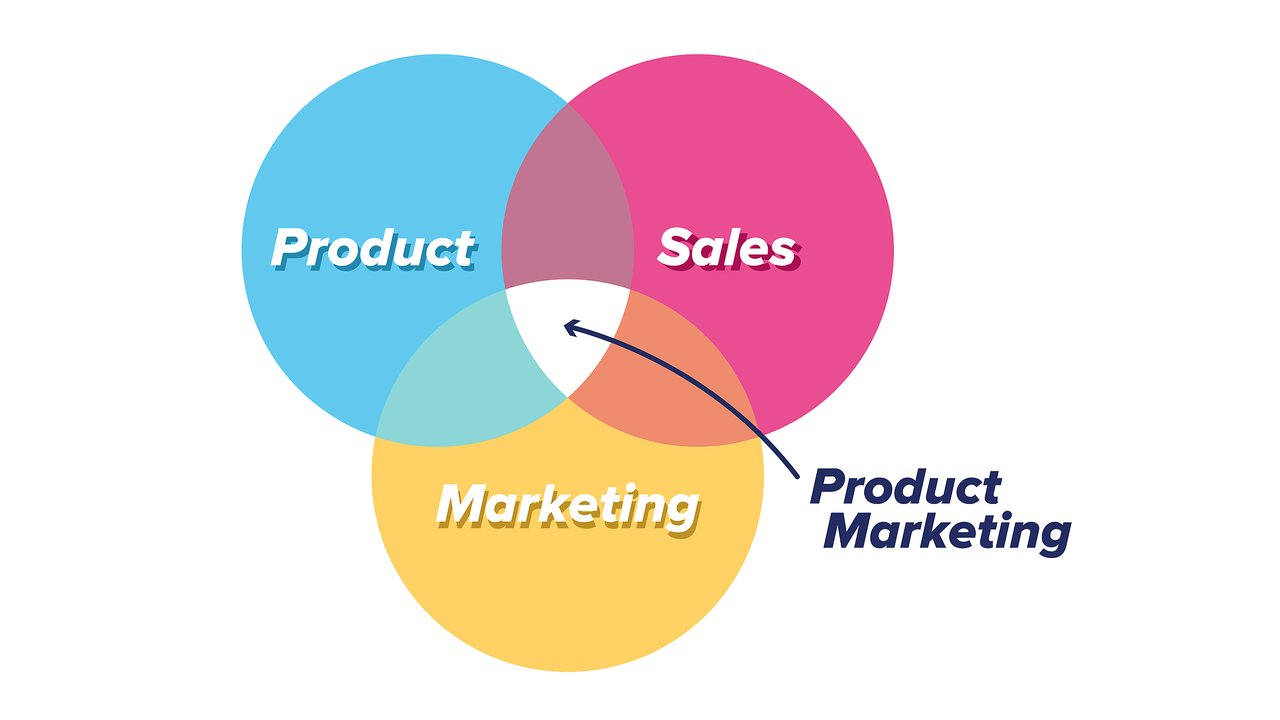Are you ready to embark on a thrilling entrepreneurial journey? Starting your own business can be an exciting and fulfilling endeavor. But before you dive headfirst into the world of entrepreneurship, it’s crucial to equip yourself with the necessary knowledge and understanding. In this article, we present you with a curated list of ten must-knows that will set you up for success as you embark on the path of entrepreneurship.
Table of Contents
- 1. Develop a Business Plan
- 2. Choose a Business Structure
- 3. Research Your Market and Competitors
- 4. Prepare Financial Projections
- 5. Consider Startup Financing Options
- 6. Develop Your Product or Service
- 7. Build Your Brand
- 8. Determine Your Pricing
- 9. Devise a Marketing Strategy
- 10. Create a Business Timeline
- Frequently Asked Questions
- To Wrap It Up

1. Develop a Business Plan
When embarking on your entrepreneurial journey, one of the first things you need to do is develop a solid business plan. This blueprint will serve as your roadmap, steering you towards success. A well-crafted business plan outlines your goals, strategies, target audience, and financial projections. It not only provides you with a clear direction but also acts as a valuable tool when seeking funding or attracting potential partners.
Creating a comprehensive business plan involves identifying your unique selling proposition (USP). What sets your business apart from the competition? What problem are you solving? Your USP should be prominent in your plan, emphasizing why customers should choose you over others. Additionally, your business plan should include a detailed market analysis. You need to understand your industry’s landscape and identify your target market’s wants, needs, and preferences.
Moreover, a business plan allows you to define your short-term and long-term goals. By setting measurable and achievable objectives, you can track your progress and make necessary adjustments along the way. This not only helps you stay focused, but it also provides a sense of motivation and accomplishment as you hit each milestone. Remember, a well-developed business plan is not set in stone; it evolves and adapts as your business grows and changes.
Lastly, a crucial aspect of your business plan is a financial projection. Predicting your revenue, expenses, and cash flow is vital for budgeting and ensuring your business’s financial viability. Prepare a sales forecast, break-even analysis, and a budgeting plan to demonstrate your financial understanding and justify your need for investment. A well-thought-out financial projection not only increases your chances of securing funding but also helps you plan for growth and expansion.

2. Choose a Business Structure
When starting a business, one of the most crucial decisions you will make is choosing the right business structure. This decision will have a significant impact on your taxes, personal liability, and how your business is legally defined. To help you navigate this process, here are 10 key points to consider before making your choice:
1. Legal Liability: Different business structures offer varying levels of personal liability protection. For example, forming a limited liability company (LLC) or a corporation can help shield your personal assets from business debts and legal claims.
2. Tax Implications: Each business structure has unique tax implications. Sole proprietorships and partnerships allow you to report business income and expenses on your personal tax return, while corporations and LLCs have their own tax filing requirements.
3. Ownership and Control: Different business structures offer different ways to structure ownership and decision-making. Partnerships allow for shared ownership and decision-making, while corporations have shareholders and a board of directors.
4. Future Growth and Financing: Consider the growth goals of your business and how you plan to finance it. Some structures, such as corporations, allow for easy access to capital through the sale of stocks or attracting investors, while others may limit your options.

3. Research Your Market and Competitors
Before taking the leap into entrepreneurship, it is crucial to dive deep into the world of market and competitors. Understanding your target market and analyzing your competition can make or break your business. Here are four essential points to consider:
1. Identify your target audience: Determine who your ideal customers are and what they need. Conduct surveys, interviews, or use online tools to gather data about their preferences, behaviors, and demographics. This information will help you tailor your products or services to meet their needs effectively.
2. Analyze your competitors: Studying your competitors is like reading a book of lessons learned. Identify who your competitors are and evaluate their strengths, weaknesses, and business strategies. This analysis provides valuable insights, allowing you to differentiate yourself in the market and capitalize on untapped opportunities.
3. Assess market trends: Markets are dynamic, and it’s crucial to stay updated on the latest trends and shifts in consumer behavior. Keep an eye on industry reports, research articles, and social media trends. This knowledge will help you anticipate changes and adapt your business accordingly, ensuring you stay ahead of the curve.
4. Understand market demand: Determine if there is a demand for your product or service. This can be done through market research, analyzing consumer behavior, and studying industry reports. By understanding the demand, you can assess the potential profitability of your business and adjust your plans accordingly.
Remember, research is an ongoing process. Continuously monitor your market and competitors to adapt to emerging trends and stay ahead of the competition. By investing time and effort into this crucial step, you are setting a solid foundation for long-term success in the business world.
4. Prepare Financial Projections
Finance is the backbone of any business, and preparing financial projections is an essential step in ensuring its success. Here are a few key things to keep in mind when diving into the world of financial forecasting:
1. Understand the Purpose: Financial projections serve as a roadmap for your business’s future. They provide insights into its potential profitability, cash flow, and growth prospects. So, before you start crunching numbers, set clear objectives for your projections. Are they for attracting investors, securing funding, or guiding your operational decisions? Knowing this will help you tailor your projections to suit your specific needs.
2. Project Realistically: While it’s tempting to envision soaring profits and exponential growth, it’s important to be realistic in your financial projections. Base your forecasts on thorough market research and industry trends to predict potential risks and challenges accurately. Remember, investors value honesty and transparency, so avoid overly optimistic projections that may raise eyebrows or lead to unrealistic expectations.
3. Break It Down: To ensure accuracy and demonstrate a comprehensive understanding of your finances, break down your financial projections into meaningful categories. Consider including projections for revenue, expenses, cash flow, and balance sheet. By segmenting your forecasts, you can effectively identify areas of strength and areas that may need improvement, allowing for better decision-making in your business strategy.
4. Seek Professional Guidance: Financial projections can be complex, especially if you lack experience or expertise in finance. If you find yourself struggling with numbers and formulas, don’t hesitate to seek professional help. Engaging an accountant or financial advisor can provide you with valuable insights, ensuring that your projections are sound, reliable, and data-driven.
Remember, financial projections are not set in stone. As your business evolves, you may need to revisit and update them to reflect the current market conditions and your company’s performance. Treat projections as a dynamic tool that will help guide your decision-making process and keep your business on the path to success. With careful preparation and realistic forecasting, you’ll have a strong foundation for long-term financial stability and growth.
5. Consider Startup Financing Options
There are several startup financing options to consider before embarking on your entrepreneurial journey. Securing the necessary funds is crucial for the success of any business venture. Here are some key aspects to keep in mind when exploring your financing options:
1. Friends and Family: Don’t overlook the potential support from your loved ones. Approach them with a clear business plan and sincere passion. Remember, borrowing from friends and family has its pros and cons. Make sure to set clear terms, including repayment plans and potential interest rates.
2. Bootstrapping: For those looking to maintain complete control over their business, bootstrapping might be the way to go. This method involves using personal savings or reinvesting profits to fund your startup. While it requires frugality and careful financial planning, bootstrapping enables you to retain ownership and avoid sharing equity with investors.
3. Crowdfunding: Leverage the power of the crowd by turning to crowdfunding platforms. These online communities can help you raise funds by attracting individuals who believe in your business idea. Craft a compelling campaign, offering incentives to contributors such as early access to products or exclusive merchandise. Keep in mind that successful crowdfunding often requires a significant social media presence to capture the attention of potential backers.
4. Small Business Loans: Many financial institutions offer specialized loans for start-ups. These loans are tailored to the needs of new businesses and often come with flexible repayment terms. Research different lenders, considering factors such as interest rates, collateral requirements, and eligibility criteria. Prepare a strong business plan and be ready to provide detailed financial projections to increase your chances of securing a loan.
Remember, choosing the right financing option for your startup is a crucial decision. Analyze your business needs, financial situation, and long-term goals to make an informed choice. Each option has its benefits and drawbacks, so take the time to thoroughly evaluate all possibilities. By securing the necessary funding, you can propel your business forward and increase its chances of success.
6. Develop Your Product or Service
When it comes to starting a business, developing your product or service is a crucial step in turning your idea into a reality. Here are some essential things you need to consider:
1. Identify your target market: Understanding who your product or service is aimed at is essential for successful development. Conduct thorough market research to gather insights about your potential customers’ needs and preferences. This will enable you to tailor your offering to meet their demands effectively.
2. Define your unique selling proposition: What sets your product or service apart from the competition? Clearly articulate the features, benefits, and value that make your offering unique. This will help you stand out in the market and attract customers who are looking for the specific benefits your product or service provides.
3. Develop a prototype: Before fully committing to production, consider creating a prototype to ensure your product or service meets your anticipated quality standards. A prototype allows you to refine your offering based on user feedback and make necessary improvements before investing significant resources.
4. Test and iterate: Once you have a prototype, don’t hesitate to put it to the test. Gather feedback from potential customers, conduct surveys or focus groups, and use that information to refine your product or service. Iteration is key to ensuring your offering is continuously improving and meeting the evolving needs of your target market.

7. Build Your Brand
Creating a strong brand identity is essential for any business. It’s what sets you apart from your competitors and makes you memorable to customers. Here are key considerations to keep in mind as you :
1. Define your brand’s personality:
Determine the values and characteristics that define your brand. Is it playful and vibrant or professional and sophisticated? Understanding your brand’s personality will help you shape your messaging and visual elements.
2. Craft a compelling brand story:
Your brand story is the narrative that connects you to your audience emotionally. It should reflect the essence of your business and resonate with your target market. A compelling story builds trust and loyalty, so invest time in creating one that captivates and inspires.
3. Consistency is key:
Consistency across all touchpoints is crucial in building a strong brand. From your logo and website design to your social media presence and customer interactions, ensure a consistent tone, message, and visual identity. This fosters recognition and trust in the long run.
4. Engage with your audience:
Building your brand means creating a mutually beneficial relationship with your audience. Actively engage with your customers through social media, email newsletters, and events. Seek feedback, address concerns promptly, and celebrate customer successes. These interactions build brand reputation and foster brand loyalty.
Remember, a strong and well-defined brand can be a competitive advantage, helping you attract and retain customers. Invest time and effort into building an authentic brand that resonates with your target audience. Your brand is the face of your business, so make it one that people will recognize, trust, and choose.
8. Determine Your Pricing
Setting the right price for your products or services is crucial for the success of your business. It’s important to find a balance between maximizing profits and appealing to potential customers. Here are some key considerations when determining your pricing:
1. Know Your Costs
Start by calculating all the costs associated with producing and delivering your products or services. This includes materials, labor, overhead expenses, and any other operational costs. Understanding your costs will help you set a baseline for your pricing and ensure that you’re not selling at a loss.
2. Research the Market
Take the time to research your competitors and understand the market dynamics. Look into what similar businesses are charging for similar products or services. This will give you a benchmark to compare your pricing against and determine if you want to position yourself as a premium or budget option.
3. Determine Your Value Proposition
Consider the unique value your products or services bring to your customers. What sets you apart from your competitors? Are you offering convenience, quality, expertise, or a combination of factors? Understanding your value proposition will help you confidently price your offerings based on the added value you provide.
4. Test and Adjust
Once you have set your initial pricing, it’s important to test it in the market and gather feedback from your customers. Monitor sales, profitability, and customer satisfaction to see if your pricing strategy is effective. Don’t be afraid to make adjustments as you gather more data and insights.
Pricing is a dynamic aspect of your business that may need to be revisited periodically. As your business grows, customer demands change, or the market evolves, reevaluating and adjusting your pricing strategy will help you maintain competitiveness and sustain profitability. Remember, finding the right pricing strategy takes time and experimentation, so be flexible and open to making necessary adjustments along the way.

9. Devise a Marketing Strategy
Marketing is a crucial aspect of any business, as it helps attract and retain customers. To devise a successful marketing strategy, here are some key points to consider:
- Know your target audience: Understanding your ideal customers is essential. Conduct market research to identify their demographics, preferences, and needs. This knowledge will help tailor your marketing efforts.
- Set clear goals: Establish specific and measurable goals for your marketing strategy. Whether it’s increasing brand awareness, driving website traffic, or boosting sales, having clear objectives will guide your actions.
- Craft a compelling message: Your marketing message should resonate with your target audience. Highlight the unique value your business offers and communicate it effectively through various channels.
Choose the right channels: Selecting the most suitable marketing channels is crucial. Consider online platforms like social media, email marketing, and search engine optimization (SEO), as well as offline methods such as print advertising and networking events.
- Utilize digital marketing: In today’s digital age, online marketing plays a vital role in reaching your audience. Create engaging content, optimize your website for search engines, and leverage social media platforms to maximize your reach.
- Monitor and analyze: Regularly measure the effectiveness of your marketing efforts. Analyze data, such as website analytics and campaign metrics, to identify what strategies are working and make necessary adjustments for better results.
- Stay flexible and adaptable: Marketing strategies should evolve with changing trends and customer behaviors. Be open to trying new approaches, staying up-to-date with industry trends, and adjusting your strategies accordingly.
By developing an effective marketing strategy, you can position your business in the market, differentiate yourself from competitors, and ultimately drive success. Remember, consistency and continuous refinement are essential for long-term marketing success.

10. Create a Business Timeline
Creating a business timeline is an essential step that often gets overlooked in the early stages of starting a business. It not only helps you stay organized, but it also acts as a roadmap for your success. Here are four key points to consider when creating a business timeline:
1. Identifying your goals: Before diving into the nitty-gritty details, take a step back and define your long-term goals. Ask yourself what you want to achieve in the next one, three, or five years. By having clear goals in mind, you can structure your timeline around achieving these milestones.
2. Breaking down tasks: Once you have your goals set, the next step is to break down each goal into smaller, manageable tasks. This way, you can assign specific timelines and prioritize accordingly. Whether it’s setting up your website, conducting market research, or finalizing your product, having a breakdown of tasks ensures that you stay on track and meet your objectives.
3. Allotting realistic timelines: It’s crucial to be realistic when setting deadlines for your tasks. Rushing through them will compromise the quality of your work, while unrealistic expectations may hinder progress. Consider various factors such as budget, resources, and potential obstacles when determining timelines. Remember, a well-paced timeline ensures that each task is completed efficiently and within the allocated time frame.
4. Flexibility is key: Flexibility is equally essential in creating a business timeline. Unexpected challenges are bound to arise, and it’s crucial to adapt your timeline accordingly. Be ready to adjust deadlines, reorganize tasks, or allocate additional resources when needed. A flexible timeline allows you to address unforeseen obstacles without derailing your overall progress.
Creating a business timeline requires careful planning and attention to detail. By identifying your goals, breaking down tasks, setting realistic timelines, and being flexible, you’ll be well-equipped to navigate the exciting and challenging journey of starting your own business.
Frequently Asked Questions
Q: What’s the first thing budding entrepreneurs need to know?
A: Starting a business requires a clear and well-thought-out idea. Take your time to refine your concept and ensure it brings value to the market. Remember, a solid foundation is vital for success!
Q: Is there a secret formula for picking the right business niche?
A: No, not really. Choose a niche you are passionate about and have expertise in. Embrace a field that ignites your enthusiasm, as this will carry you through the inevitable challenges that come with running a business.
Q: Finance seems like a complex aspect of starting a business. How important is a financial plan?
A: A well-crafted financial plan is crucial. It helps you understand your start-up costs, projected cash flows, and potential revenue streams. A thorough understanding of your finances will guide your decision-making and allow you to weather storms along the way.
Q: Speaking of unforeseen events, what about having a contingency plan?
A: Absolutely! A contingency plan ensures you are prepared for unexpected circumstances such as economic downturns or sudden shifts in your industry. Flexibility and adaptability are key ingredients for long-term survival in the business world.
Q: How crucial is market research during the initial stages?
A: Market research is like a compass pointing you in the right direction. It helps you identify your target audience, competition, and consumer demands. By understanding the market landscape, you can adjust your business model and meet customers’ needs more effectively.
Q: What role does branding play in the success of a business?
A: Branding is your business’s identity; it distinguishes you from the competition. Thoughtful branding helps build credibility, fosters customer loyalty, and amplifies your unique story. Remember, strong branding makes your business memorable!
Q: Is finding the perfect location still important in the digital age?
A: Absolutely! While many businesses operate online, your physical location matters. It can impact your target audience, accessibility, and even your brand’s perception. Consider the pros and cons carefully before deciding on a location or explore online options if appropriate.
Q: How can aspiring entrepreneurs build a strong support network?
A: Surrounding yourself with a supportive network is invaluable. Join entrepreneurial organizations, attend networking events, and connect with mentors who can guide you through challenges. Never underestimate the power of collaboration and learning from others’ experiences.
Q: Is there something entrepreneurs often overlook when starting a business?
A: One aspect that is sometimes overlooked is the importance of self-care and work-life balance. Building a business requires dedication and hard work, but remember to take care of your physical and mental well-being. Burnout won’t do your business any favors!
Q: What is the final piece of advice for budding entrepreneurs?
A: Keep your passion alive! Starting a business is a roller coaster ride, filled with highs and lows. But with determination, perseverance, and a dose of optimism, you can overcome obstacles and turn your entrepreneurial dreams into reality. Embrace the adventure!
The Way Forward
As we conclude this captivating journey through the realm of entrepreneurship, we hope you feel equipped with the knowledge needed to embark on your business venture with confidence. Remember, every new endeavor is a canvass waiting for your inventive strokes. So, take a deep breath, gather your determination, and let your aspirations soar.
We’ve delved into the intricate world of entrepreneurship, unraveling its mysteries one step at a time. From the ins and outs of market research to the significance of a solid business plan, we’ve provided you with the essential tools for success. Through the pages of this article, we have unraveled the secrets, debunked the myths, and paved the way for your entrepreneurial triumph.
By now, you know that starting a business is no small feat. It requires perseverance, resilience, and an unwavering dedication to your vision. But armed with the wisdom gleaned from these pearls of knowledge, you are ready to face the challenges head-on and turn your dreams into a tangible reality.
So, as you embark on this business odyssey, remember to surround yourself with like-minded individuals who will propel you forward, fuel your passion, and offer guidance when the road gets bumpy. Seek out mentors who have treaded this path before and learn from their triumphs and tribulations. Remember, no one ever truly succeeds alone.
And when the hurdles seem insurmountable, take a moment to reflect on your own strength and determination. Remember that every setback is an opportunity to learn and grow. Embrace the failures as stepping stones to success, and let them ignite the flames of your ambition even brighter.
As we bid farewell, know that your journey is about to unfold, painting countless possibilities on the blank canvas of entrepreneurship. Harness your creativity, dare to innovate, and let your entrepreneurial spirit dance freely. In this vast, interconnected world, your unique contribution awaits — so go forth and make your mark.
With these parting words, we wish you an exhilarating journey filled with triumphs and wonders. May your business flourish beyond your wildest expectations, and may your entrepreneurial spirit inspire others to chase their dreams fearlessly. Remember, the road may be winding, but the destination promises immeasurable rewards.
So, take that leap of faith, armed with the expertise gained from the wisdom shared here, and may your entrepreneurial odyssey be nothing short of extraordinary. Onward, future entrepreneur!







